What is male-related andropause? Is it even real?
These are the questions you may be asking yourself as you start to deal with low energy, decreased libido and weight gain as you age.
Andropause is real and it is something that all men will deal with over time.
Properly diagnosing and addressing low testosterone is important because testosterone influences several critical functions in the body: weight management, subjective sense of energy, and cardiovascular health.
Learn how to diagnose and treat this condition:
Andropause (Male Menopause) vs Menopause
Andropause refers to the reduction in male hormones (specifically, testosterone) that tends to occur around the same time that women undergo menopause.
Starting at around age 50, both males and females experience a reduction in the hormones that define their gender.
For men this is testosterone, for women, this is estrogen and progesterone.
Women experience this reduction in a dramatic fashion which occurs over a period of 6-12 months.
When this occurs their estrogen and progesterone levels fall to very low levels and they get the symptoms associated with that decline -> hot flashes, mood changes, weight gain, and a reduction in libido.

Men experience a similar transition only they experience it over a longer period of time (the transition happens more slowly).
Around age 50, men experience a slow reduction in testosterone which occurs over several years.
Why is this important?
Testosterone is THE defining hormone in the male.
Testosterone is responsible for maintaining muscle mass, modulating your mood, improving your sex drive, maintaining your weight, and fighting off heart disease and metabolic syndrome (1).
This drop in testosterone, therefore, represents a serious condition that may affect your mood, weight, and risk of mortality later in life.
The good news is that you can treat this condition (and it’s not very hard), the bad news is that most physicians aren’t aware of how to do this.
Even worse some physicians suggest that taking testosterone is harmful when in reality you may be missing out on several benefits by not taking it.
Symptoms of Andropause in Men
Most men know when something is “off” in their bodies.
The problem is that even when they notice something is “off” they generally don’t seek medical help or attention.
Fortunately, when it comes to testosterone and andropause, there are several symptoms that may help you identify if you need further testing.
Because testosterone is so important to the male body, the symptoms of low testosterone may be very widespread and non-specific (2).
Remember:
Testosterone is responsible for defining the male gender. During adolescence, the reason the male body changes the way that it does is largely due to testosterone levels.
It’s not hard to imagine that the reduction of this very important hormone causes many issues as it decreases.
In addition, many of the symptoms associated with low testosterone and andropause are often pushed aside as symptoms of “getting older” which can make diagnosis difficult for some people.
These symptoms are NOT normal and should be evaluated further.
You can see a full list of symptoms that are associated with Andropause and low testosterone below:
- Weight gain (3) (especially abdominal weight gain)
- Lower-than-normal energy
- Apathy (losing the “edge”)
- Decreased libido and/or erectile dysfunction
- Decreased bone mass/density
- Reduction in muscle mass
- Increased irritability, symptoms of depression or anxiety
- Hair loss
- Changes to cholesterol or metabolic profile
- Sleep disturbances (insomnia or a general decrease in quality of sleep)
Each person may present with a range of the symptoms listed above.
The most common symptoms associated with andropause include a reduction in energy, weight gain, low energy, and decreased libido.
These 4 symptoms are very common among people with low testosterone and if you are experiencing them you should get your serum testosterone levels checked.
When talking about andropause we are referring to patients who are generally over the age of 50, but patients as young as 30 are now experiencing the symptoms associated with low testosterone.
So regardless of your age, if you are a male and experiencing these symptoms you should be evaluated.
Testing for Andropause and Low Testosterone
Testing for low testosterone and Andropause is actually quite easy and is generally covered by insurance.
To get evaluated you will want to ask for the following tests:
- Total testosterone – This represents the total amount of testosterone in your blood.
- Free testosterone – This is the testosterone that is free and active. You can think of total testosterone as the reservoir of testosterone in your body while free testosterone is actually doing the work and making changes in your body.
- Sex hormone binding globulin – This protein is important because it binds to your sex hormones (testosterone) in this case. High levels will influence the amount of free testosterone available.
- Estradiol – Men have estrogen but they don’t want it very high. Taking testosterone (and other conditions) can increase estrogen and cause symptoms that may mimic low testosterone. High estrogen also increases sex hormone-binding globulin which lowers free testosterone.
- Insulin – Insulin is important because high levels of insulin have been shown to lower testosterone levels (4).
These tests are easy to get ordered and your current physician should have no problem checking them.
But this is only the beginning:
Now you need to properly interpret your lab results.
When it comes to hormones most physicians don’t know how to interpret or treat imbalances.
Because of this, it is very important that you have a basic understanding so you can be an advocate for yourself.
When evaluating your testosterone and other hormones you want to evaluate them with an “optimal” level in mind.
Meaning that levels within the “normal reference range” are not acceptable.
Look for the following “optimal” levels:
- Total testosterone – You want this to be in the high “normal” range (within the top 25% of the reference range), so in most patients that will be greater than 700-1000 depending on the lab and reference range.
- Free testosterone – This should also be in the top 25% of the reference range.
- Sex hormone binding globulin – As a male, you don’t want this value to be greater than 30 nmol/L.
- Estradiol – Optimal levels should be less than 25-30 pg/ml.
- Insulin – Your fasting insulin should not be higher than 5 uIU/ml.
Examples of lab values are below:



Don’t accept that your testosterone levels are “normal” if they are not “optimal”.
Consider that the lab values and reference ranges include a wide range of males (including males who are 70+ years old).
You don’t want to compare your testosterone levels to some random person.
Why?
Because each of you is used to a different serum testosterone level, this is not a “one size fits all” hormone.
So even if your serum testosterone level is 400 (which is considered normal), that doesn’t mean it is “normal” for your body.
You may have had a serum testosterone level of 1000 when you were younger – and this is the level we are trying to get you back to.
Remember:
Replacing testosterone to normal and physiologic levels is safe and very helpful (5).
You only get into trouble if you start using supraphysiologic doses (meaning doses higher than what your body is used to producing naturally).
5 Causes of Andropause & Low Testosterone
We know that age absolutely causes low testosterone, but there are other factors that can influence testosterone as well.
While many males suffer from low testosterone secondary to andropause around age 50, many other males are experiencing the symptoms of low testosterone in their 20s and 30s.
Understanding what causes low testosterone can help for several reasons:
First:
Finding the cause of your low testosterone allows you to potentially increase your testosterone levels naturally.
This is extremely helpful if you can’t find a physician willing to work with you or prescribe testosterone.
Second:
Addressing these other issues may dramatically improve your quality of life by balancing other hormone systems in your body (they will help you lose weight and feel better).
With that in mind let’s talk about the 5 most common causes of Andropause and Low testosterone:
#1. Age & Time (Yes, getting older)
Regardless of how healthy you are your testosterone will eventually decrease over time.
This can be frustrating for men who spend a lot of time eating healthy and exercising regularly.
We know from statistical studies that testosterone will eventually decline over time (6).
We also know that unhealthy behaviors and lifestyle choices can impact this decline and make it occur earlier than normal and more rapidly.
On the flip side, that means that making healthy choices may prolong the time it takes until you start to develop the symptoms of low testosterone.
Most men will experience some decline in testosterone starting in their 40s which will continue through their 50s.
#2. Lack of exercise/Weight training
You probably know that testosterone influences muscle mass production by influencing protein synthesis in skeletal muscle (7).
What you may not have realized is that strength training can actually increase your testosterone levels by increasing your muscle mass.
Studies have shown that heavy resistance training (8) can help to naturally increase free and total testosterone as well as IGF-1.
This effect is more pronounced the younger you are (younger men experience a more dramatic rise in testosterone after a workout), but it is still helpful for men in their 40s and 50s.
Maintaining muscle mass will help to maintain serum testosterone levels.
This also means that not exercising will lead to lower levels of muscle mass and lower levels of testosterone and IGF-1 in your body.
Bottom line?
Make sure you are exercising and utilizing resistance training in your exercise program.
#3. Insulin Resistance
Insulin resistance is another common cause of low testosterone and early andropause in both males and females.
Insulin resistance is involved in the weight gain/low testosterone cascade:

Insulin resistance leads to low testosterone which causes increased fat mass, leptin resistance, and weight gain.
But how do you get insulin resistance?
Insulin resistance is developed when you consume high-carbohydrate (refined carbohydrates, refined sugars, etc.) foods.
One of the worst offenders is sugary drinks (soda, juice, etc.).
These high-carbohydrate meals cause a spike in blood sugar which leads to a rise in insulin levels.
Over time, the repeated rise leads to insulin resistance, weight gain, and low testosterone.
It’s important to test for insulin resistance because it can easily be treated using a combination of dietary changes and the addition of targeted supplements.
Refer to the lab reference ranges above for more information on how to test for insulin resistance.
As an aside – this condition can lead to low testosterone in young men as well, and if you have a personal diagnosis of type II diabetes you likely have very low testosterone.
Replacing this low testosterone actually helps to reverse insulin resistance (9) and can be part of your treatment for type II diabetes.
#4. Stress & Lack of Sleep
Next on the list is stress.
High levels of consistent and chronic stress can prematurely lower testosterone.
In the same vein, chronic and persistent lack of sleep can also prematurely lower testosterone.
So the question becomes:
How big of an impact do these two things play?
Studies have shown that a 1-week reduction in sleep (10) (to an average of 5 hours per night) lowered testosterone levels by 10-15%.
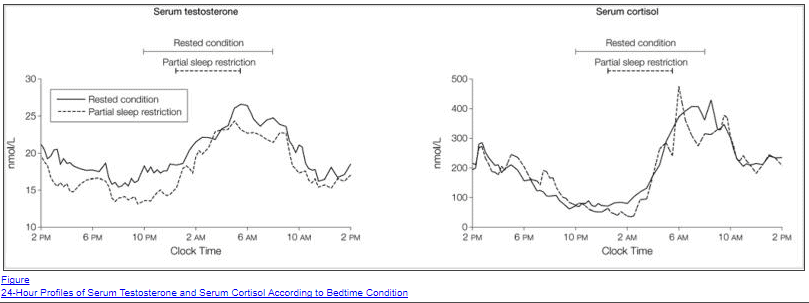
During this same time period, cortisol levels also spiked.
This is important because high cortisol can worsen existing insulin resistance and persistently elevated cortisol (secondary to stress) can alter blood sugar homeostasis.
What’s more concerning is that around 20% of working men state they get 5 hours of sleep per night on average.
With this information, we can almost safely assume that up to 20% of males have at least 10-15% lower than normal testosterone levels (not accounting for the impact of cortisol on insulin resistance).
Stress, by itself, is also enough to lower testosterone (11) (in both males and females).
The kind of stress I am referring to is the kind of stress that you come into contact with on a daily basis.
I’m talking about fighting with your spouse, issues with your kids at school, problems with co-workers, anger related to traffic, etc.
Anything that adds to your existing stress (no matter how small) is adding to the cumulative amount of stress that you are under at any given time.
Once this reaches a certain point you will start to experience more than just low testosterone.
You can learn about treating stress levels with targeted supplementation here.
#5. Weight Gain (especially abdominal fat)
Weight gain and low testosterone are linked with a vicious cycle.
Weight gain causes low testosterone and low testosterone allows for further weight gain (12).
The more weight you have to lose, the more difficult it will be to lose this weight because your testosterone levels are more and more suppressed.
This isn’t really an issue if you are only 20-30 pounds overweight but it can become a big deal if you have 50+ pounds to lose.
Studies have shown that the higher your testosterone level is, the easier it is to lose weight (and the more weight you will lose):
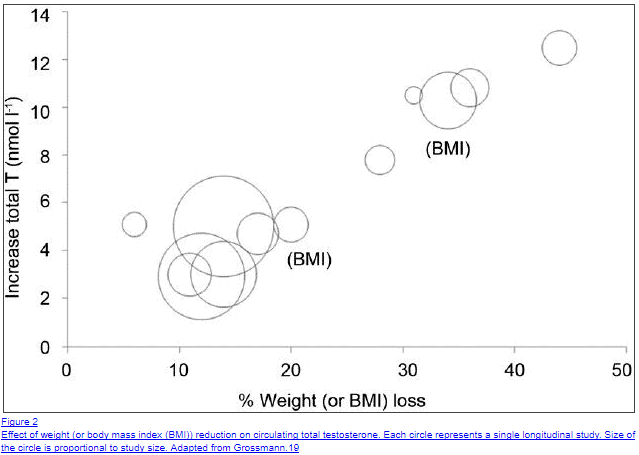
This creates a scenario where it’s much more beneficial for men to take testosterone to help them lose weight, rather than expect them to lose weight to naturally increase their testosterone levels.
I recommend (due to the various benefits listed above) that men use testosterone replacement therapy if they have 30+ pounds to lose.
Treatment for Male Andropause with Testosterone Replacement Therapy
If you find that you are suffering from andropause (regardless of the cause) what are you supposed to do?
Luckily, treatment is quite easy, safe, and effective.
The treatment is to replace the deficient testosterone in your body.
The goal here is to give you enough to bring your testosterone level back to what it was when you were in your teens and twenties – when your testosterone was at its peak.
Why do you want to do that?
Well, for starters, we know that you tolerated this level in the past. Why? Because this is probably when you felt the best in your life.
You had energy, sex drive, muscle mass, etc.
We want to use this as a goal because by bringing you back to this level we know we aren’t giving you too much or potentially causing any issues.
We can do this in 1 of 2 ways:
By using Testosterone injections or by using transdermal testosterone gels.
The best way to use testosterone is by directly absorbing it into your tissues and by bypassing the first-pass metabolism of the liver – this means no oral formulations of testosterone.
In addition to using testosterone, you will also want to consider using both an estrogen blocker and HCG.
Remember:
Excess testosterone can be converted to estrogen, especially in certain individuals.
You can easily block this conversion process by taking an aromatase inhibitor (usually Arimidex).
HCG helps maintain testicular size and provides a natural boost to testosterone levels to boot.
This triple combination therapy of testosterone + HCG + an estrogen blocker should be considered proper and healthy testosterone replacement therapy.
Finding your “optimal” dose of testosterone may take some trial and error and it will make your life much easier if you can find a physician willing to work with you.
In addition to using testosterone replacement therapy (or if you can’t find a physician willing to help you), there are several other therapies you should consider as well.
Natural Treatments for Andropause
These next set of treatment guidelines are considered “natural” but for best results, they should be combined with testosterone replacement therapy.
#1. Clean up your diet
While changing your diet isn’t likely to dramatically increase your testosterone like using injections or gels will, it is still helpful.
Improving your diet will impact how you feel, your energy level, and your weight.
Even making a few simple changes can go a long way to improving testosterone, and other hormones as well.
Consider making the following changes:
- Dramatically reduce (or eliminate) added or refined sugars -> this means ice cream, candy bars, sugary drinks, pastries, etc.
- Limit the amount of caffeine that you use (cut back on coffee or energy drinks)
- Reduce or eliminate alcohol from your diet
- Cut back on breads, pastas, rice, and other carbohydrate-dense foods
- Increase the number of healthy fats that you consume -> start cooking with extra virgin olive oil, coconut oil, and butter from grass-fed cows
- Eat at least 1 full plate of vegetables each and every day -> this can be a large salad at lunch or two side-servings of vegetables with lunch and dinner
- Limit the number of times you eat out each week (1-2x per week max)
Making these changes will help to lower insulin, lower blood sugar, improve your cholesterol profile, and most importantly, help you feel better.
#2. Consider Supplements
I will be honest here:
Taking over-the-counter testosterone boosters will not increase your testosterone dramatically.
Having said that, they do serve an important purpose…
These supplements can help increase libido, mood, and energy levels and may be treating problems and symptoms that are not caused by low testosterone or andropause.
With that in mind it may be worth a trial of these supplements which have been shown in clinical studies to increase testosterone (at least to some degree):
- D-Aspartic Acid – Taking up to 6 grams of D-aspartic acid has been shown in some studies to help increase both free and total testosterone (13). Other studies have shown that this bonus seems to taper off long-term, but increases in testosterone are still seen for at least a few months. The key here is that you must use 6 grams of this supplement daily, which is about 1 tablespoon of the supplement recommended above.
- Maca root – It’s not clear exactly how maca works in the male body, but it definitely increases libido, sexual desire, and sperm count (14). Studies have been unable to link these benefits with serum testosterone levels (15), however, the benefits may be related to cellular sensitivity or increased cell signaling related to testosterone. To get the benefits listed above you will want to use 3,000mg per day (blended in a smoothie).
- Zinc – Cellular zinc levels and serum testosterone levels are closely correlated (16). Taking zinc (if you are deficient) will increase serum testosterone levels, but how common is deficiency? It turns out that zinc deficiency in the young and elderly, even in the US, is quite common. Repleting this deficiency will take 3-6 months at 50-60mg per day.
- Fenugreek – Fenugreek is another supplement that may result in a transient (temporary) increase in testosterone, specifically free testosterone (17). Studies have shown that taking fenugreek does result in improved muscle mass (when coupled with resistance training) and decreased fat mass. It may be this change in body composition which results in the increase in free testosterone seen with supplementation. To get these benefits you will need to take at least 500mg per day.
#3. Reduce your stress & Improve your sleep
You already know that a general lack of sleep and chronic stress can reduce your testosterone, but what you may not know is how to properly address these issues.
When it comes to sleep need to get at least 8 hours each night.
If you aren’t getting at least 8 hours then you can try these recommendations:
- Consider using supplements to help increase the quality of your sleep like melatonin, 5 HTP, or Hydroxy GABA
- If you work on a computer all day make sure you block out blue light in the evening -> you can do that with blue light-blocking glasses
- Find a schedule and stick to it (wake up at the same time each morning and make sure you go to bed at the same time each evening)
- Avoid alcohol in the evening
- Make sure you are active each day (exercise, walking, swimming, etc.)
When it comes to reducing your stress the best option is to try and make your body more resilient to the stress you come into contact with.
Why?
Because it’s difficult to eliminate all sources of stress, a better approach is to help your body handle it.
You can do that with the following recommendations:
- Try taking an adrenal adaptogen to help reduce the impact stress has on your body
- Practice daily yoga or prayer
- Find hobbies that you enjoy and use them to blow off steam
- Make sure you find time to “play”
- Make it a point to be intimate with your spouse or significant other regularly (sex will increase endorphins and improve your adaptive response)
Doing these things each week will make a big difference in how you handle stress in your life.
#4. Start resistance training
Lastly, you should be incorporating exercise into your weekly regimen.
More specifically you should be adding resistance (weight) training one to two times per week (depending on tolerance).
Weight training is helpful for several reasons:
- Weight training helps build muscle mass which increases testosterone, growth hormone, and metabolism
- Exercise improves mood through neurotransmitter signaling
- Weight training helps improve glucose homeostasis and insulin resistance (18)
- Resistance training helps reduce age-related decline in muscle mass (19) which reduces the quality of life as you age
You don’t need to be a bodybuilder to get these benefits, either.
Many of these benefits can be realized when lifting for 20-30 minutes a couple of times per week.
I recommend that you focus on major muscle groups to increase efficiency, namely: pectoral muscles, glutes/hamstrings/quads, back (width and thickness), and deltoids/arms.
You can hit these muscle groups with the following exercises:
- Chest press -> pectoral muscles
- Lateral pull down -> Lats
- Horizontal pull -> Paraspinal muscles, rhomboids, traps, scapular muscles
- Shoulder press -> Deltoids
- Squats/weight lunges -> Quads, gluts, and stabilizer muscles
Over to you
The bottom line?
Andropause is the age-related decline of testosterone that will ultimately occur in all men.
The effects related to this decline in testosterone can be almost completely reversed using a complete testosterone replacement program when coupled with lifestyle changes and supplements.
If you are experiencing the signs and symptoms of andropause make sure you get evaluated and treated as soon as possible.
You may need to find a specialized physician to help you further.
Now I want to hear from you.
Are you suffering from andropause? Have you tried testosterone replacement therapy?
Did it work for you?
Leave your comments below.
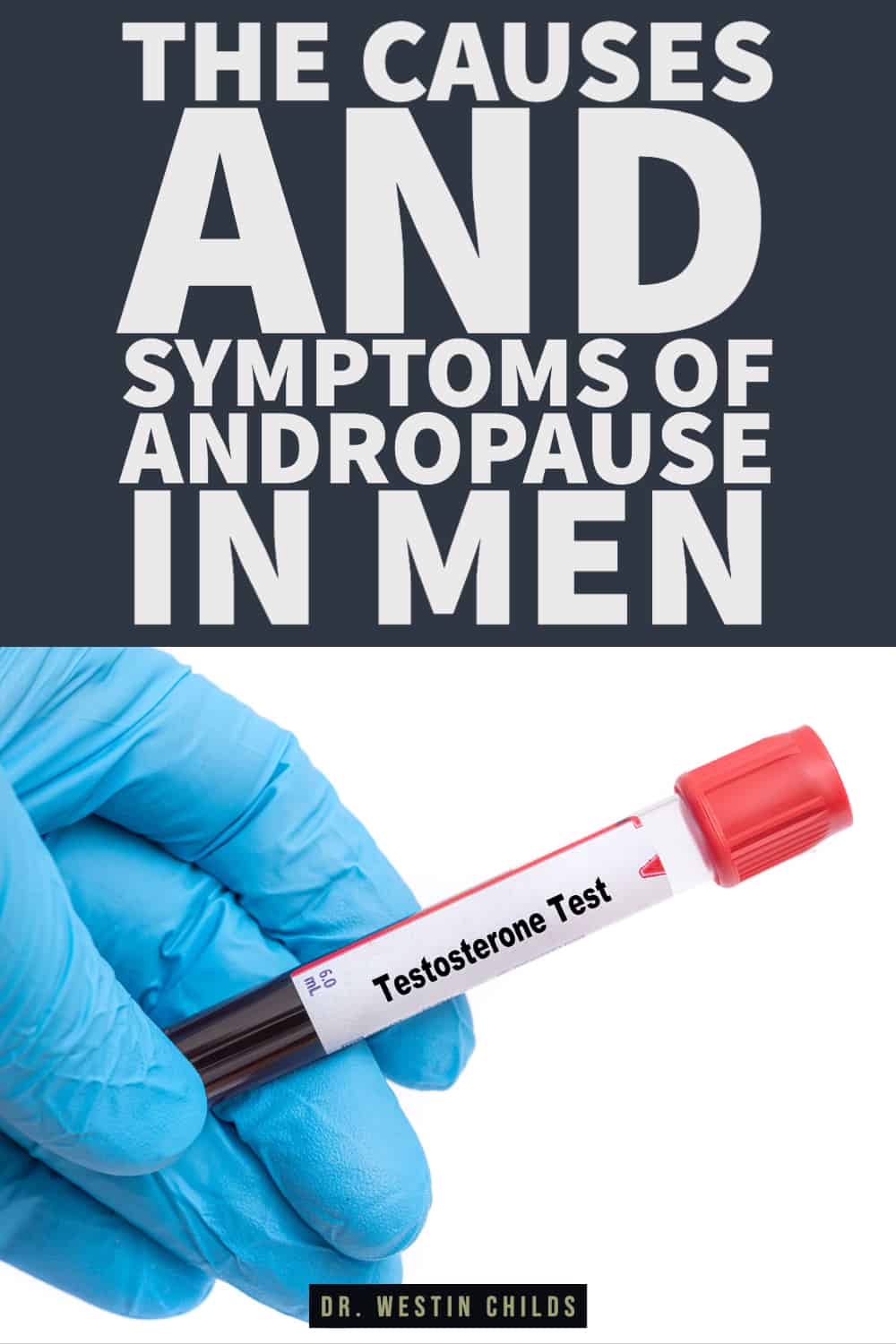
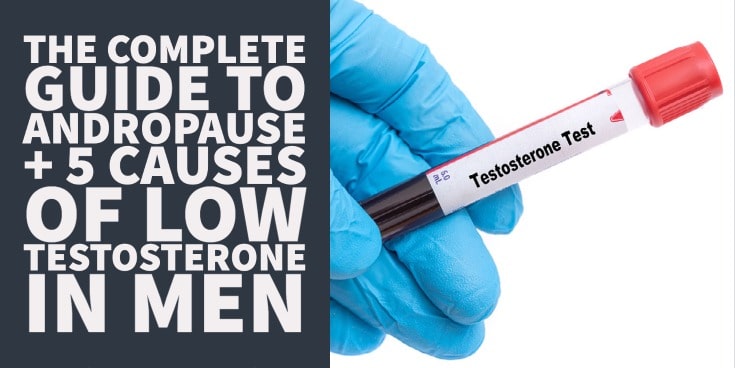
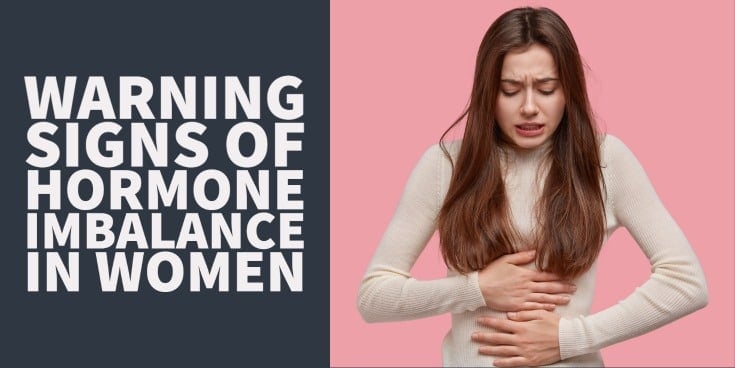
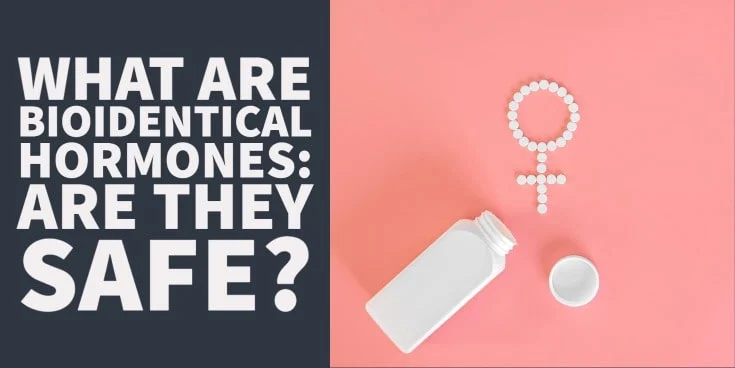

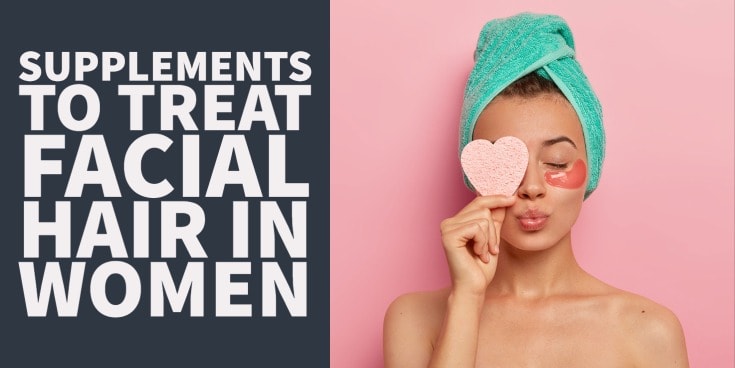
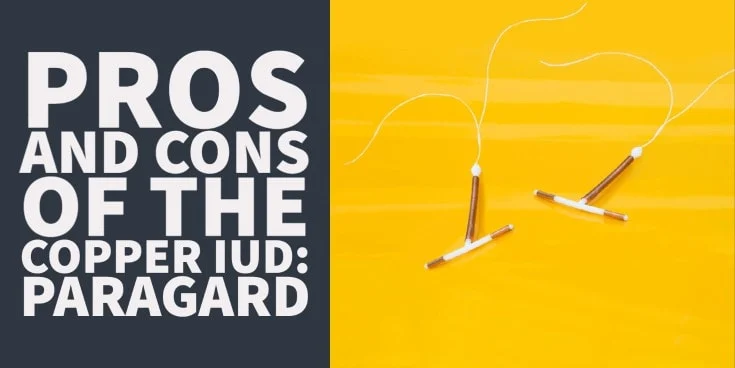
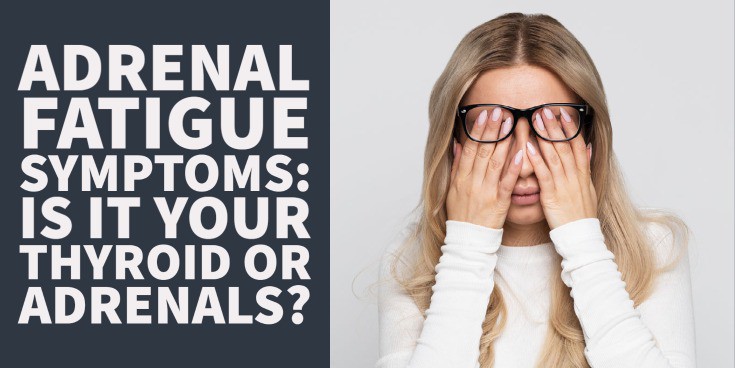

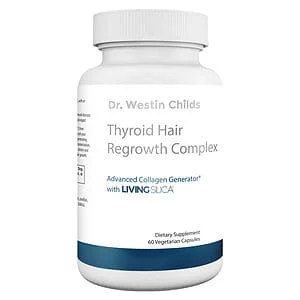
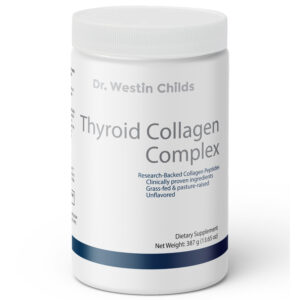
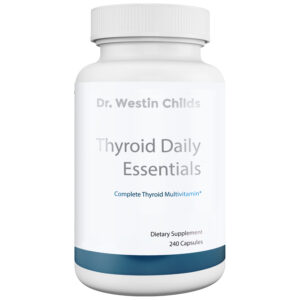
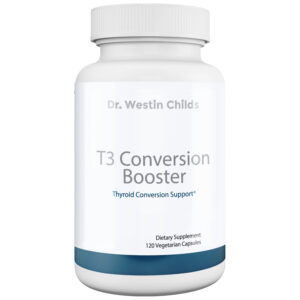
Dr Childs.
First of all thank you for this blog, it is adicting!
Im a 33yo male, 6’2 190lbs i believe i have low T. My recent lab showed 406 (April 2017, within hour of wakeup) my doctors keep telling me that there is nothing they can do because its within normal range (280-1300) and my efforts to convince them that my level is normal, but for a 70yo were fruitless. Ive been resistance training on-and-off my whole life but lately (2 years)I’ve lost a lot of muscle mass while training heavily 3 times a week.
Presumably the doctors dont want to do anything from fear of the insurance companies (no treatment/additional tests since im within range).
I do not want to go to a trt clinic as i heard once you start there is no return. Plus they seem to be scammers, charging hundreds of dollars on a monthy basis no matter what kind of treatment they providing.
My low levels are not from steroid/prohormone use, i would asume they might be from kratom, a herb i used to take daily to manage back pain (slightly herniated disk) but it also helped tremendously with my anxiety, stuttering, depression and anahedonia. Currently i take it on the weekends only. I also have trouble staying a sleep (anxiety, panic) and use a cpap even though im not obese and ENT cant find the cause of the apnea. Cpap is unsuccessful as it pumps air to my digestive tract, but i still use it on low setting.
Anyhow what are my options besides trt? I eat organic,cook at home every day, lost over 100lbs in 11 years (took it slow)
People view me as a healthy guy. With the exception of acne ive been fighting with for the last 20 years.
Wonder what your thoughs are!(hcg? Clomid?)
Ps. Thanks to your blog would love to get my reverse T3 checked as well but can’t do it if t4/t3 are within range…
Hi Kacey,
A good and reasonable place to start would be with a full thyroid test.
I am in the process of writing an extensive post on how to bring up testosterone naturally which may be of interest to you once it is published.
In terms of things that you can do to increase testosterone without the use of TRT, you need to focus on various lifestyle factors and control hormone imbalances such as insulin resistance if possible.
HCG is reasonable but not really a long term solution if used in isolation in my opinion.
Hi Dr. Childs,
I stumbled across your blogwhile doing some research on hypothyroidism. A year ago(July,2016) I suffered a significant stroke at the age of 42. I have been hypo for the past 15 years or so. I found a great doctor who has helped me tremendously. He recently started me on Nature Throid. He also prescribed Clomiphene to help with my Low T. I am also taking 25 mg of DHEA to address my adrenals. This is a very informative blog. I am excited to learn from you!
Warm regards,
Brian
Hi Brian,
Glad you found it helpful. I think your treatment is headed in the right direction so far especially with the naturethroid, I would also look into testosterone replacement therapy (over clomiphene) which provides more natural and sustained testosterone levels. It would also be worth assessing other pituitary hormones given that both your testosterone and thyroid are sub optimal by your report.
Hello Dr. Childs,
I’m 81 years old, and for the last 2-3 years I’ve had almost unmeasurably low Testosterone readings (my latest reading was 12.0, on the normal scale which my physician uses to show a normal range of 300-1200. I’m six weeks into another attempt to correct this, using a compounded pellet implant (10 pellets, but I don’t know how to express the dosage amount). This is my latest attempt at TRT, previously I tried gels, creams, injections, and pellets. All failed to bring my testosterone (at least the total testosterone, the other markers were not consistently read). My symptoms are the usual suspects for (later onset) hypogonadism: In spite of a generally good diet, my energy levels are so low, it’s nearly impossible for me to get to the gym, much less pursue a vigorous, consistent exercise practice. All my life I’ve been generally healthy, so this is extremely frustrating for me. I’ve exhausted several urologists who claim to practice male health issues, such as mine, plus several endocrinologists. I’ve almost run out of ideas, so anything you can provide will be hugely appreciated.
Your online information is very thorough, and your knowledge very impressive. To paraphrase Princess Leia: “Help me, Obi-Wan Kenobi [she meant Westin Childs], you’re (about) my only hope”.
Hi Robert,
Great reference! 🙂
Not all providers are created equal in terms of how they manage hormones such as testosterone. It’s entirely possible that you’ve just had inexperienced providers try to dose your testosterone. I’ve never been unable to increase a man’s testosterone because there are so many options. It sounds like your best bet is to find someone who specializes more in men’s health than in other aspects (like urology).